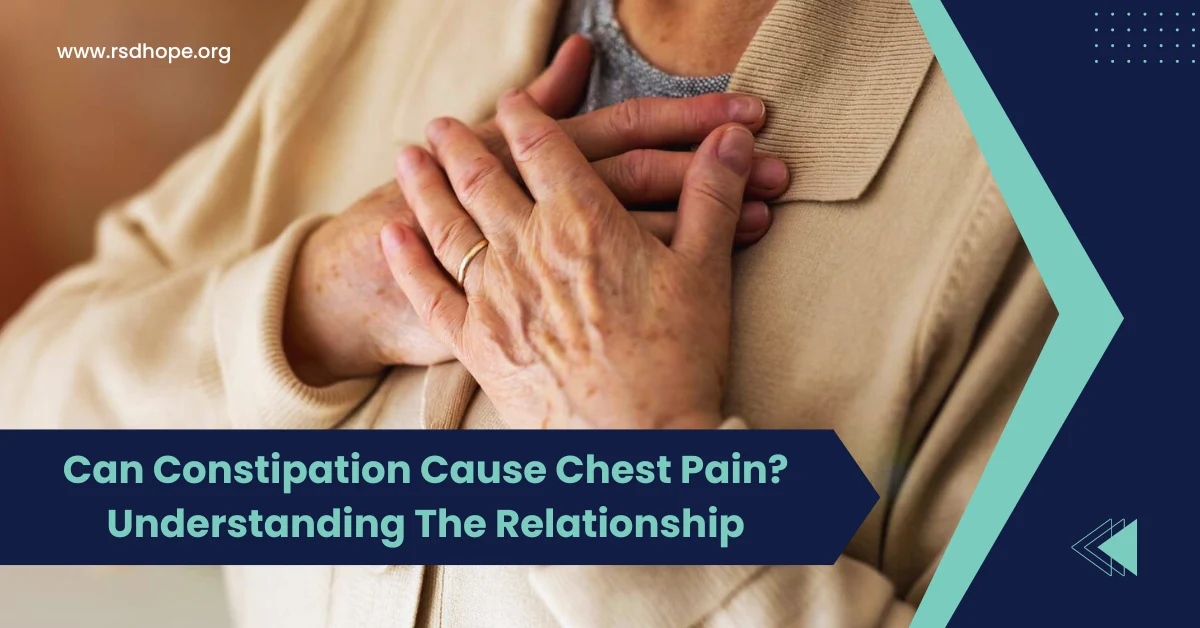Constipation is a common digestive issue that affects millions of people worldwide. It is characterized by infrequent bowel movements, difficulty passing stools, and a feeling of incomplete evacuation. While constipation is often associated with abdominal discomfort, many people may not realize that it can also cause chest pain. In this blog post, we will explore the connection between constipation and chest pain and discuss ways to alleviate and prevent this discomfort.
Key Takeaways
- Constipation can cause chest pain by putting pressure on the diaphragm due to gas and bloating.
- Increasing fiber intake, staying hydrated, and regular exercise can help relieve chest pain caused by constipation.
- Adopting a healthy lifestyle, including a balanced diet and physical activity, can prevent constipation and maintain overall well-being.
Understanding Constipation
Constipation occurs when bowel movements become less frequent and stools become difficult to pass. Several factors can contribute to constipation, including a low-fiber diet, dehydration, lack of physical activity, certain medications, and underlying health conditions. Common symptoms of constipation include:
- Having fewer than three bowel movements per week
- Straining during bowel movements
- Passing hard, dry, or lumpy stools
- Feeling like you haven’t completely emptied your bowels
Also Read: Can Constipation Cause Fever? Understanding the Connection
Can Constipation Cause Chest Pain?
While it may not be the first symptom that comes to mind, constipation can indeed cause chest pain. When you are constipated, your digestive system can become backed up, leading to a buildup of gas and bloating. This excess gas can put pressure on your diaphragm, the muscular wall that separates your chest cavity from your abdominal cavity. As a result, you may experience discomfort or pain in your chest.
In some cases, severe constipation can also cause referred pain. This means that the pain is felt in a different area of the body than where the problem actually exists. For example, constipation-related pain in the abdomen may be felt in the chest, leading to confusion and concern.
How to Relieve Chest Pain from Constipation?
If you are experiencing chest pain due to constipation, there are several steps you can take to alleviate your discomfort:
- Increase your fiber intake: Eating more fiber-rich foods, such as fruits, vegetables, and whole grains, can help promote regular bowel movements and reduce constipation. Gradually increase your fiber intake to avoid excessive gas and bloating.
- Drink plenty of water: Staying hydrated is essential for preventing constipation and softening stools. Aim to drink at least 8 glasses of water per day, and more if you are engaging in physical activity or consuming high-fiber foods.
- Exercise regularly: Physical activity can help stimulate bowel movements and relieve constipation. Aim for at least 30 minutes of moderate exercise most days of the week, such as brisk walking, cycling, or swimming.
- Try over-the-counter remedies: In some cases, over-the-counter laxatives or stool softeners may provide temporary relief from constipation. However, it is crucial to consult a healthcare professional before using these products, as they can cause side effects and may not be suitable for everyone.
How to Prevent Constipation?
Preventing constipation is key to reducing your risk of experiencing chest pain and other related symptoms. Here are some tips for maintaining a healthy digestive system:
- Eat a balanced diet: Focus on consuming a variety of fiber-rich foods, such as whole grains, legumes, fruits, and vegetables. Aim for at least 25-30 grams of fiber per day.
- Stay hydrated: Drink plenty of water and other fluids throughout the day to keep your stools soft and easy to pass. Limit your intake of caffeine and alcohol, as they can contribute to dehydration.
- Exercise regularly: Engage in physical activity most days of the week to promote healthy digestion and prevent constipation.
- Establish a regular bowel routine: Try to have a bowel movement at the same time each day, preferably in the morning or after meals. Don’t ignore the urge to go, as this can lead to constipation over time.
Conclusion
Constipation can cause a range of uncomfortable symptoms, including chest pain. By understanding the connection between constipation and chest discomfort, you can take steps to alleviate and prevent this issue. If you experience persistent or severe chest pain, it is essential to seek medical advice to rule out any underlying health conditions.
Adopting a healthy lifestyle, including a balanced diet rich in fiber, regular exercise, and proper hydration, can go a long way in preventing constipation and maintaining overall well-being. By taking proactive steps to care for your digestive health, you can reduce your risk of experiencing chest pain and other related symptoms.
Read More: Can Antibiotics Cause Constipation? Exploring The Gut Health Connection
FAQs
A: Constipation can last for a few days to several weeks, depending on the underlying cause and severity. If constipation persists for more than three weeks, it is essential to consult a healthcare professional.
A: Yes, stress can contribute to constipation by affecting the digestive system and slowing down bowel movements. Managing stress through relaxation techniques, exercise, and self-care can help alleviate constipation.
A: While not everyone with constipation experiences chest pain, it is a possible symptom. If you have persistent or severe chest pain, it is crucial to seek medical attention to rule out any underlying health conditions.
A: Yes, some medications, such as opioid painkillers, antidepressants, and iron supplements, can contribute to constipation. If you suspect your medication is causing constipation, consult your healthcare provider to discuss potential alternatives or solutions.
Sources:

